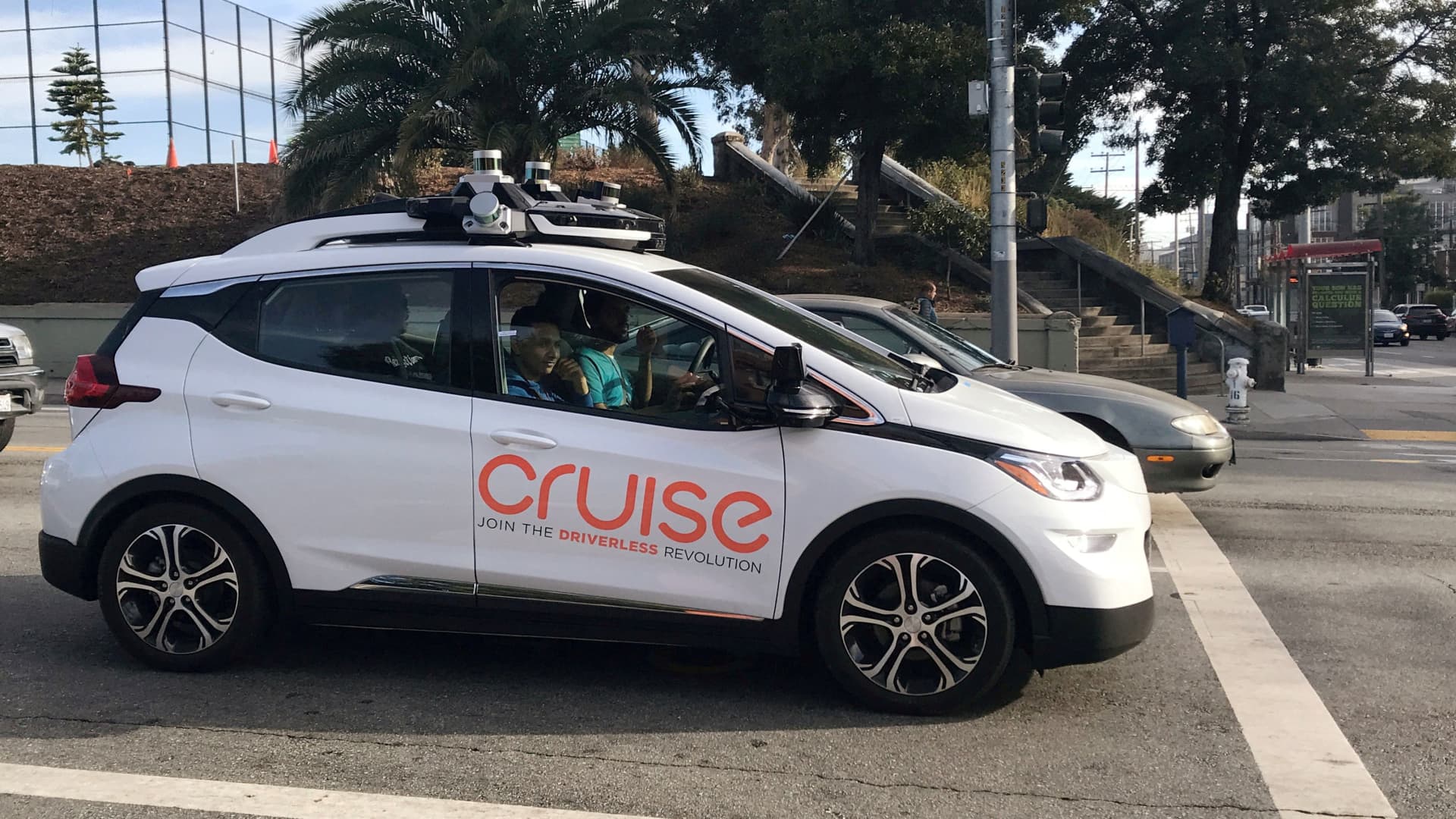The company Cruise is pushing back against an accusation from the San Francisco Fire Department, which claims that one of the company’s autonomous vehicles delayed an ambulance after a deadly accident.
According to SF Fire, on Aug. 14, a driver hit a pedestrian in the city at around 11 p.m. The department said emergency medical service crews faced a problem getting to the collision: two Cruise taxis blocking the road.
That blockage, according to SF Fire, caused a delay in getting the pedestrian to the hospital, where they later died.
In a report, the department wrote of the incident: “This delay, no matter how minimal, contributed to a poor patient outcome…The fact that Cruise autonomous vehicles continue to block ingress to critical 911 calls is unacceptable.”
But Cruise is pushing back on that narrative of events. A spokesperson for the company said videos from those AVs show a different story.
“The first vehicle promptly clears the area once the light turns green and the other stops in the lane to yield to first responders who are directing traffic,” the spokesperson wrote in a statement. “Throughout the entire duration the AV is stopped, traffic remains unblocked and flowing to the right of the AV. The ambulance behind the AV had a clear path to pass the AV as other vehicles, including the ambulance, proceeded to do so. As soon as the victim was loaded into the ambulance, the ambulance left the scene immediately and was never impeded from doing so by the AV.”
Cruise wouldn’t share that video, saying that it was proprietary material.
But NBC Bay Area was able to review a nearly 13 minute video which is purportedly the incident in question. It appears to show what the company describes, including the ambulance managing to squeeze by the stopped Cruise car.
The incident happened just four days after the California Public Utilities Commission approved an expansion for Cruise, as well as the company Waymo, allowing both to operate AVs at all hours in San Francisco.
It’s a move Supervisor Aaron Peskin has been critical of. And while he couldn’t speak to the events on Aug. 14 , Peskin did tell NBC Bay Area there are now more than 70 documented incidents of AVs interfering with first responders.
“In those cases seconds and minutes can make a difference in whether somebody bleeds out or is able to be resuscitated from a heart attack or other emergency,” he said. “And it’s not a question of ‘if,” it’s a question of ‘when.’ “
Peskin is asking the state for more regulation over the emerging AV industry. He said the city is set to talk to legislators and DMV leadership later this month.

ivermectin 3mg online – stromectol for sale online order carbamazepine 200mg online
accutane without prescription – linezolid brand cheap linezolid
amoxil usa – order diovan 80mg sale buy combivent 100 mcg without prescription
omnacortil 40mg cheap – order prednisolone online cheap prometrium 100mg cost
buy furosemide sale diuretic – order betamethasone 20 gm creams3 buy betnovate 20 gm sale
buy neurontin medication – order neurontin 600mg pill cost sporanox 100mg
amoxiclav cheap – ketoconazole 200 mg pills buy duloxetine generic
purchase acticlate pills – order albuterol 2mg online buy glucotrol generic
amoxiclav without prescription – cymbalta 20mg ca buy duloxetine 40mg generic
rybelsus for sale – buy cyproheptadine without a prescription buy periactin 4mg sale
cialis 40mg uk – buy cialis pills viagra 50mg usa
order lipitor generic – buy cheap amlodipine buy zestril 5mg online
buy cenforce without a prescription – buy generic chloroquine over the counter buy glucophage generic
lipitor order online – cost lipitor 80mg order zestril 2.5mg for sale
buy prilosec 20mg generic – purchase atenolol sale order tenormin generic
order clarinex for sale – buy desloratadine medication order dapoxetine 30mg pill
order generic misoprostol – buy generic misoprostol over the counter order diltiazem 180mg for sale
buy acyclovir 400mg online – buy rosuvastatin pills order crestor 20mg sale
buy generic domperidone for sale – motilium 10mg oral cyclobenzaprine pills
purchase domperidone sale – buy sumycin 250mg online cheap cyclobenzaprine uk
order coumadin 2mg for sale – cozaar drug losartan 25mg over the counter
buy levaquin 250mg online cheap – buy levofloxacin for sale generic ranitidine 300mg